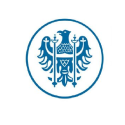
The public history program is addressed to all the BA graduates, not only in history, and even not only in the humanities, who would like to conduct the research about and promote the public uses of history. Public history has been operating since the 1970s as a subdiscpline of history, but also as a separate academic discipline. It is called the history "for the people, by the people, with the people, of the people" and deals with all the aspects of history outside the formal education (also academic education). It operates for many years at the universities world-wide and enjoys considerable popularity among the students.
The history itself concentrates on examining the past (aiming at answering the question "how was it there?") while public history conducts research on how the knowledge about the past is present in the social consciousness and how it is (and may be) instilled in this consciousness, with the central question of "what do (did/will) the people know about how it was?" It focuses on the historical memory, which is rather marginal in the "traditional" history research. The courses from the public history program concentrate on the ways of shaping the historical consciousness (or collective memory) - both in the context of its theoretical framework and mechanism (including e.g. politics of history) and in various practical ways (tools/techniques) of influencing this memory and consciousness, starting from collecting and processing the testimonies of the past, through speech-writing and preparing other texts promoting the historical knowledge, exhibitions, historical installations, to locating historical elements in mass media, entertainment or in virtual environment in its broadest sense. This is why even the general chronological overview of the past, which is placed in the public history curriculum, concentrates on the elements (phenomena, events, processes, individuals) that evoke debates and controversies - i.e. are present in the public sphere - and does not repeat the traditional academic history curriculum.